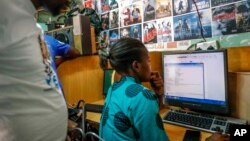"It just didn't do it for me," the 23-year-old concludes.
Welcome to the art of de-influencing, one of the latest trends on TikTok, in which influencers tell you what not to buy. As of early April, the hashtag had more than 430 million views on the wildly popular video-sharing app.
"It's an honest version of what we see every day on social media," de-influencer Fride tells AFP.
Some have cast de-influencing as a response to soaring inflation, or even an anti-consumerist movement - basically, don't buy things that are not worth your money.
"Do you really need 25 different perfumes? Are you really going to use them all?" said a TikTok user in a video with the hashtag.
But others say influencers are doing the same thing as before, with a slightly more palatable name.
Fride admits that at first, she was "really scared" how certain brands would respond to her new tactics.
When one of her videos went viral, she says she told her mother: "I hope they don't hate me." But it ultimately led to offers of new partnerships with companies who appreciated her negative reviews for their rivals.
For Fride, it's a sign that companies "want a more nuanced review."
According to Tubular Labs, a social media analytics firm, the trend - which really took off in January - first emerged in September 2022, thanks to one Maddie Wells.
Wells is not exactly a campaigner; the influencer was simply using her experience working in cosmetics stores to explain why customers were unhappy with certain products.
- 56 pairs of shoes -
Jessica Clifton, a 26-year-old American influencer, explains that the de-influencing trend rang true for her.
A few years ago, she became aware of the impact her conspicuous consumption - new clothes virtually every day in separate packaging, endless varieties of foundation makeup, a plethora of lipsticks- was having on the environment.
"I don't even know how to use makeup," Clifton told AFP, adding that she realized she owned 56 pairs of shoes.
"I was like, 'Oh my God, how did I get here?'"
Clifton opened a new TikTok account dedicated to responsible consumption. So she was thrilled when de-influencing took off. She's even posted a few videos with the hashtag.
A quick glance at the latest videos posted on TikTok with the #deinfluencing hashtag shows that Clifton is not alone in her disappointment.
For Americus Reed, a professor of marketing at the University of Pennsylvania's Wharton School of Business, influencers are "no longer seen as authentic" by the public, which knows they are being paid to promote products.
A de-influencer, at least for now, is seen as more honest.
"That's a way to stand out," Reed says, while admitting that in the end, "a de-influencer is still an influencer."




